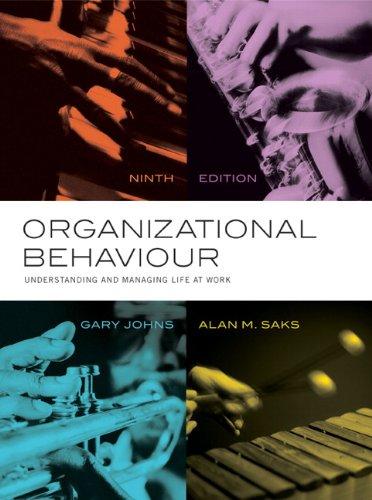Chang Koh Metal Ptd. Ltd. was founded in Singapore in 1982 by Teo Kai San, a first
Question:
Chang Koh Metal Ptd. Ltd. was founded in Singapore in 1982 by Teo Kai San, a first generation Straits-born Chinese. The company’s operations were in the production of metal-stamping precision parts. In 1993, the company expanded its operations by establishing a plant in Putian, China, the area of China from which Teo Kai San’s parents had emigrated. The founder’s son, Andrew Teo, was appointed as general manager.
Andrew was 29 years old and had an engineering degree from the National University of Singapore. Prior to joining his father’s company, Andrew had worked for an American multinational company in Singapore and had progressed to the rank of line manager, a position with substantial authority and responsibility. Andrew joined his father’s company because he felt that his success in the multinational was a sign of his skills, indicating that he deserved a senior position in his father’s company on the basis of merit rather than family connections. He also felt that the systems and practices he had learned at the multinational would enable him to bring more updated management practices to Chang Koh Metal.
Since Andrew’s father believed it was important to have in a position of authority a person who was knowledgeable about the local area, he appointed a relative from Putian, Jian Wei, as the plant manager - to assist Andrew in the plant’s operations. A primary reason for choosing China as the site for a plant was the belief that Singaporean Chinese should find it easy to work with the Chinese in China. After all, the two groups shared a common cultural heritage. The other advantages were the readily available supply of labour—Singapore was experiencing full employment, and the company found it difficult to recruit qualified production workers—and the lower operating costs.
After a year in China, however, Andrew was not sure the plan to venture there had been wise. Although the labour costs were much lower than in Singapore, productivity was disappointing, and a number of management and labour problems had arisen, which he felt were frustrating his efforts to control the plant efficiently.
QUESTIONS
1. Comment on the fixed salary system that Andrew adopted from his former employer. Why was this system not effective for motivating the plant workers?
2. Do you think that scrapping the fixed salary system and replacing it with the piece-rate system was a good idea? What are some of the strengths and weaknesses of the piece-rate system?
3. Why was Andrew unsuccessful in his efforts to improve product quality? Do you think that a system of demerit points and wage deductions for the quality control workers would have been effective? Would having more supervisors in the quality control department and shipping products to Singapore for final inspection solve the problem? What do you think would be an effective way to improve product quality?
4. Were cross-cultural differences a factor in the effectiveness of the salary systems? How effective do you think each system would have been if the plant was located in North America?
5. Discuss the potential effects of implementing an MBO program in the plant. Do you think it would improve productivity and solve some of the problems?
6. Are there any conditions under which the piecerate system might have been more effective?
7. What are some alternative ways to use pay to motivate the workers at the plant? Are there alternatives to the piece-rate system? How effective are they likely to be? What does this case say about using money as a motivator?
8. What should Andrew do now? What would you do?
Step by Step Answer:

Organizational Behaviour Understanding And Managing Life At Work
ISBN: 9780133347500
9th Edition
Authors: Gary Johns, Alan M. Saks





